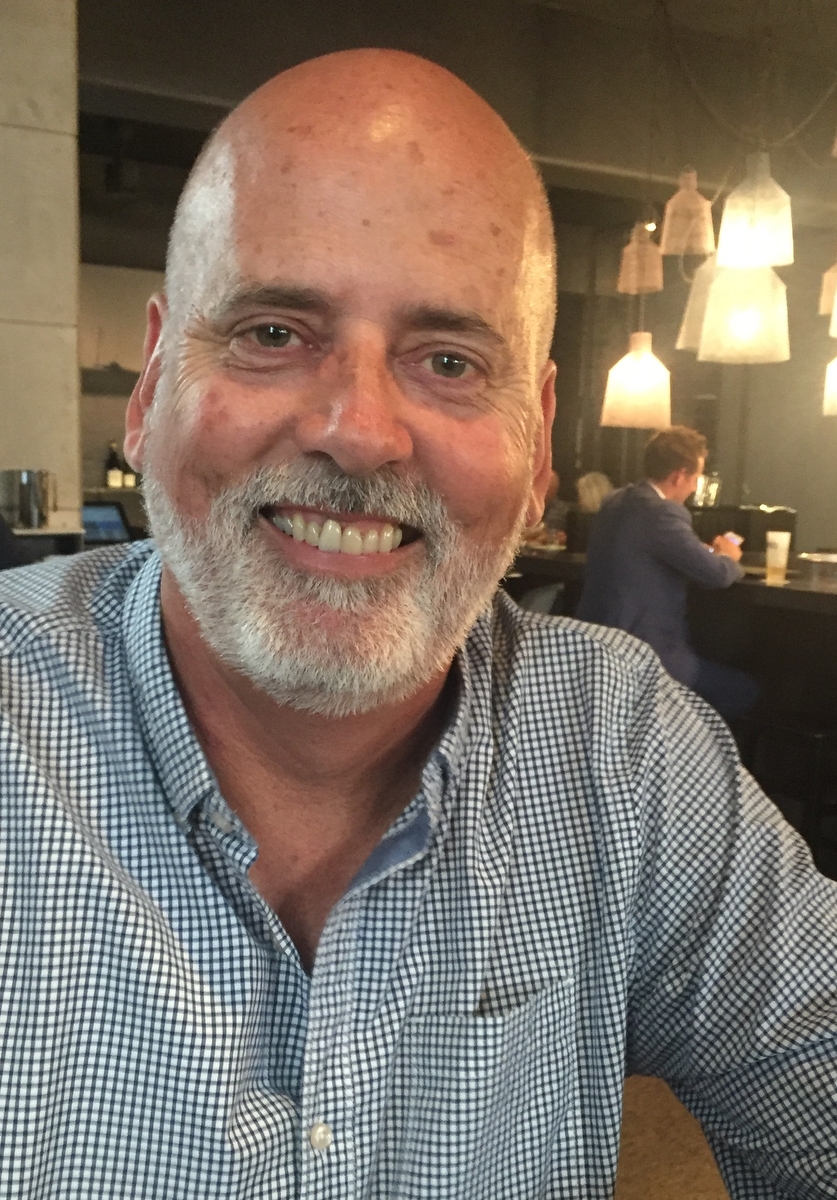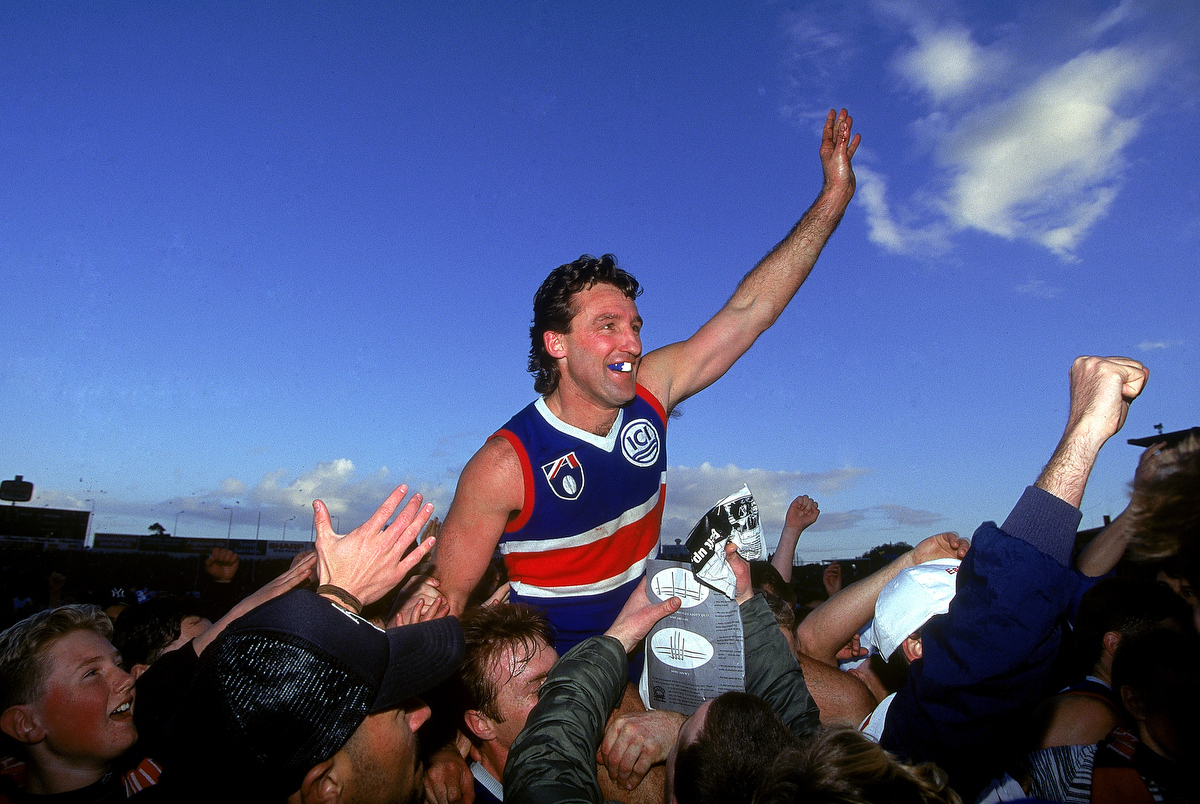AFTER A STELLAR 35-year career in newspapers, culminating as editor-in-chief of the Melbourne Age, Andrew Holden jumped the media fence last year to become communications chief at Cricket Australia. LAWRENCE MONEY (who was an Age columnist for 27 years) bowls him a few bouncers:
LM: Cricket is a bit overshadowed by footy and basketball and other sports these days, isn’t it?
AH: Hardly. The Big Bash is now the fifth-biggest domestic league in the world in terms of attendance. It’s the number one thing in Australia across the summer. One million through the gates in 2016-2017, 20 of the 35 matches sold out. And international cricket is still pulling crowds and great numbers on TV. Cricket is the one national sport that appeals and binds everyone across Australia. No football code does that. As much as the AFL tries, they have never taken over NSW and Queensland. Cricket is the only sport which has a national team playing at home every year.
LM: The Ashes always get Australian fans wound up but does the rest of the world care?
AH: The Ashes is Carlton-Collingwood in footy, Wesley versus Scotch in school sport. It’s a wonderful history of rivalry that you just build upon. In world terms it doesn’t have to mean anything because Australians care and that’s all that matters.
LM: Did you strap on the pads at school?
AH: No, I was a runner. Middle-distance, cross-country. I was a skinny beanpole and figured I’d get hurt playing footy or cricket, but if I ran faster than everyone else they couldn’t hit me!
LM: So now you get paid to sit around watching cricket? How sweet is that?
AH: Well I go to the first couple of days of most Test matches and that’s fantastic, but you have to remember when you’re at a sporting event, and you have a job to do, you can’t just sit there. At the Brisbane Test late last year, when the pregnancy-clause story broke, I don’t think I saw a ball bowled on the first day.
LM: So, what’s it like now on the other side of the media fence?
AH: It’s takes a while to change your brain around. To stop thinking as a journalist and start protecting the reputation of the organisation you are representing. In the early days I would come across information that would make me think, “This is a good story,” but then I had to think further: “But only if the story is told THIS way.”
LM: So (pardon the pun), you’re now a cricket spin doctor?
AH: The irony is that, on what you might call the “dark side” of the media business, you still have to have a very strong sense of ethics. To be an effective comms person, you can’t lie. If you do, and get caught out, you’re toast. You won’t ever be trusted again.
LM: Have you been surprised or disappointed dealing with any particular members of the sporting media? Maybe journos who were once on your editorial staff?
AH: As Francis Urquhart would say – I couldn’t possibly comment.

LM: When you left The Age in July last year you were described as a “hands-off editor”. Is that good?
AH: That description can mean an editor is uninterested or doesn’t care. Or it could mean that, on a paper like The Age where people have worked hard to get to that level of journalism, they are deserving of trust that they know what they’re doing. If they make a mistake you wear it and in my time at The Age we had a few famous moments where we were wrong. In those cases you just take it on the chin.
LM: We both trained as cadets on the old Melbourne Sun News-Pictorial although of course, being a mere youth of 57, you were there a decade after me. What’s changed in journalism since those days?
AH: There is much more opinion creeping into news pages. On the Sun (now the Herald Sun, but a very different creature), it was straight-up news. We were taught to tell it fast, tell it simply. Taught not to editorialise as a reporter. Back then even the Sun itself had no daily editorial because it had this philosophy of, “Who are we to tell you what to think?” Now I think it is the polarisation of debate. It is happening in the community and it’s happening in the media.
LM: After your farewell speech in The Age newsroom the journos gave you the longest round of applause I heard for an editor in my 50 years on metro papers. You must have done something right.
AH: Arguably, elements of that were due to my editing style. Trusting staff, giving them the space and opportunity to be the best. But the main reason I think was that we had been through a crisis together. With the staff cuts at that stage, we had lost 130 of our colleagues who we all respected and enjoyed working with. We had to get our heads around digital, had our desks taken away from us, all that, but the newsroom continued to produce the best journalism in the country.
LM: Finally mate, thanks for putting me on obituaries in my final year on The Age.
AH: I was just gently preparing you for “that good night” of retirement, ’Orrence! You know, you still remind me of Omar Sharif …”
Lawrence Money has twice been named Victoria's best newspaper columnist by the Melbourne Press Club. He wrote columns for 37 years on the Melbourne Herald, Sunday Age and daily Age -- and in Royalauto and Your Sport magazines -- before retiring in 2016 after a 50-year career in journalism.
He still treads the speaking circuit, does radio gigs, tweets on @lozzacash and chases a long-gone 13 golf handicap. He clings to the eternal hope that the Melbourne Demons will once again win a flag.



Discussion about this post